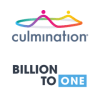Dive Brief:
- European sales of Roche's cancer medicine Herceptin slid lower by about a fifth during the third quarter, marking the first effects of competition from cheaper copycat versions to the blockbuster drug that launched earlier this year.
- Herceptin is the second of Roche's trio of top-selling biologics to become exposed to biosimilars in Europe, after entry of biologic copies to the Swiss pharma's Rituxan last year. Investors are closely tracking how quickly sales of the two drugs fall off in order to gauge whether Roche can sustain growth in the near term.
- So far, however, the losses in Europe have only blunted the momentum Roche has generated from a slate of newer products led by its multiple sclerosis medicine Ocrevus and cancer drugs Alecensa and Tecentriq.
Dive Insight:
Quarters like Roche just reported make it easier to believe in the confidence of company executives that the pharma can maintain growth amid biosimilar competition.
Overall, sales for Roche's drugs division rose 7% in constant exchange rates during the three months from July to August, the drugmaker reported Wednesday. So far this year, new medicines have added nearly 2.3 billion Swiss francs, or just over $2.3 billion, to Roche's sales, compared to the roughly $775 million in sales declines attributable to biosimilar competition.
But investors remain anxious that biosimilar rivals to Roche's Rituxan (rituximab), Herceptin (trastuzumab) and Avastin (bevacizumab) could threaten future growth despite hastening new drug sales.
In the roughly one year since biosimilars to Rituxan launched in Europe, sales have dropped by half. Meanwhile, Herceptin's 21% decline in Europe during the third quarter led to overall revenues for the drug to come in below expectations, according to the investment firm Cowen & Co.
"You do start to see the beginnings of biosimilar erosion in quarter three," said Daniel O'Day, head of Roche's pharmaceuticals division, on an earnings call Wednesday.

How quickly sales will decline, and whether such erosion would be mimicked in the U.S. when copycats arrive next year, featured heavily in analyst questions on the call.
American Depositary Receipts of Roche stock fell by more than 3% in Wednesday trading.
Roche expects biosimilars to Rituxan to become available in the U.S. sometime in the first half of 2019, and in the second half of the year for both Herceptin and Avastin.
But the pharma believes the market impact in the U.S. will be less than in Europe. "We see a difference between the erosion rates in U.S. and Europe," O'Day said.
He indicated that the more heterogenous nature of the U.S. healthcare system could limit uptake — a conclusion borne out by the limited gains biosimilars to other drugs have made to date in the states.
Additionally, there's likely to be fewer Herceptin biosimilars available in the U.S., at least at first. The Food and Drug Administration has only approved one, Mylan and Biocon's Ogivri (trastuzumab-dkst), while four are currently OK'd in Europe.
Last month, Roche sketched out a "worst-case" scenario for biosimilars, assuming a 60% to 70% erosion of sales for its top three biologics. In that event, the pharma would have to fill a roughly $10 billion revenue hole in forecast 2022 sales. Sales of newer drugs, however, are predicted by Roche to add about $11 billion, more than making up for the drop.
O'Day emphasized Wednesday the scenario was not Roche's expectation, but rather to "demonstrate that even in an extreme case we can still grow."
Key to that will be the drugs Orecvus (ocrelizumab), Tecentriq (atezolizumab) and Hemlibra (emiciziumab). While Tecentriq and Hemlibra still face challenges, sales of all three drugs are up strongly and Ocrevus in particular has recorded the best drug launch in company history.













